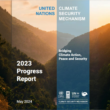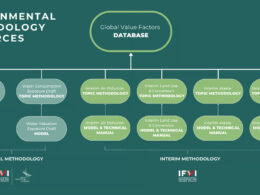The UN has accused fossil fuel companies of conducting a “massive mis- and disinformation campaign” aimed at slowing the global adoption of renewable energy and delaying the transition away from a carbon-intensive economy.
According to Selwin Hart, the UN Assistant Secretary-General, the fossil fuel industry is fueling talk of a global “backlash” against climate action to pressurise world leaders to delay implementing emissions-cutting policies. He pointed out that this perception of resistance to climate policies is being manufactured by the industry, rather than reflecting the true sentiments of the public.
Hart highlighted the need for leaders to counter the misleading narrative that climate action is difficult and expensive, and to clearly communicate the benefits of climate action, as well as the severe consequences of inaction.
He contrasted the notion of a backlash with findings from the largest global poll on climate, which showed that a strong majority of people worldwide support measures to reduce greenhouse gas emissions. The survey revealed that 72% of respondents favour a rapid transition away from fossil fuels, including majorities in the top coal, oil, and gas-producing countries. While some Green parties and policies may have faced setbacks in certain regions, Hart noted that in other areas, they have gained ground, with previously radical ideas becoming mainstream.
Governments must take heed, Hart who acts as special adviser on climate to the UN secretary general, António Guterres, urged. He noted that leaders who are ambitious in their climate policies are not only on the right side of history but also aligned with the will of the people.
He warned that climate change appears to be falling down the list of priorities for many leaders, at a time when maximum ambition and cooperation are desperately needed. He emphasised that the consequences of inaction are being felt not just in poorer nations but also in wealthier countries. For example, in the US, an increasing number of people are finding it impossible to insure their homes as extreme weather events become more frequent, a direct result of the climate crisis fueled by fossil fuels. Hart pointed out that ordinary people are bearing the costs of the climate crisis, while the fossil fuel industry continues to reap excessive profits and receive substantial government subsidies.
Hart also stressed that the world has never been better equipped to address the climate crisis, with renewable energy being more affordable than ever and the pace of the energy transition accelerating. He urged governments to ensure that their climate policies do not place an unfair burden on low-income populations, as poorly designed measures could disproportionately harm the poor and vulnerable, leading to backlash. He called for a well-planned transition that minimises the impact on these groups, as much of the so-called pushback occurs when people perceive that the costs are unfairly distributed.
To this end, the UN is calling for new national plans on emissions reductions, as required under the 2015 Paris Agreement. These plans, known as nationally determined contributions (NDCs), should clearly outline not just the targets but also the specific policies and measures that will be implemented to achieve them, as well as their likely impacts. Hart emphasised the importance of making these plans as consultative as possible, allowing various segments of society—including young people, women, children, and workers—to contribute their perspectives on how the transition should be managed and financed.






















